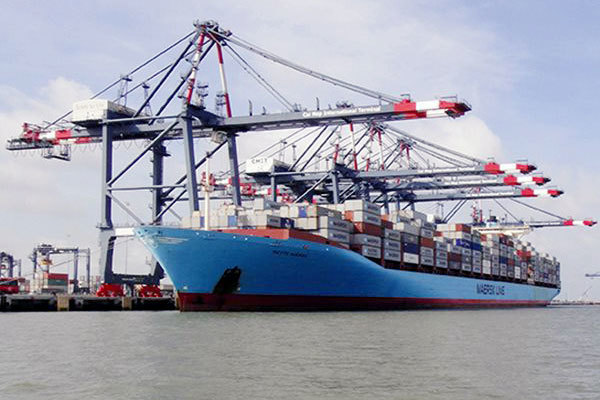 |
| Imports from China into Vietnam surged 33.2% year-on-year to US$99.4 billion from January-November. – SGT Photo: Le Hoang |
In November alone, Vietnam spent US$10.3 billion on imports from China. This took Vietnam’s trade deficit with China in 11 months to over US$49 billion, according to the General Department of Customs.
In particular, Vietnam in the year to end-November imported machinery, tools, equipment and accessories worth US$22.81 billion from China, surging 53% year-on-year.
Besides, the country imported computers, electronic products and accessories worth US$19.73 billion, and phones and phone parts worth US$8.26 billion from China, soaring 20.3% and 17.7% year-on-year, respectively.
Vietnam also increased imports of materials from China for key industries. Between January and November, Vietnam spent US$12.34 billion on Chinese-made materials for the clothing and footwear industry, rising 26% compared to the same period last year and accounting for 52% of the total imports of this industry.
In addition, the country imported some 18,400 completely built-up autos from China, surging 194% year-on-year.
Some market observers predicted that imports from China to Vietnam would reach a record US$110 billion by the end of this year.
On the other hand, Vietnam exported goods worth over US$50 billion to China from January to November, increasing 16.1% year-on-year and accounting for 16.6% of the country’s total exports.
The country mainly exported phones and phone parts, computers, electronic products and accessories, machinery, tools and equipment, cameras and fabrics and textiles to China.
However, Vietnamese exporters have concerns about potential disruptions from two revised decrees of China that introduce significant new barriers to food and agricultural exports from the country’s trading partners, including Vietnam.
They included the Regulations on the Registration and Administration of Overseas Producers of Imported Food (Degree 248) and the Administrative Measures on Import and Export Food Safety (Degree 249). The two revised decrees were announced by China in April 2021 and are slated to come into force from the beginning of next year.
Degree 248 requires all overseas food manufacturers, processors and storage facilities to register with the General Administration of Customs of China. The measure covers all food products but does not apply to food additives or food-related products such as packaging materials.
Depending on the product category, food producers must either register through the competent regulatory authority of their country or a private agent.
Degree 249 covers a broad range of requirements on food exports to China, including the registration of overseas facilities, record filing by importers and exporters, quarantine and inspection, and product labeling.
Both decrees are to enter into force soon, some exporters have decried such changes upon short notice. They also voiced concerns over the implications for trade caused by the two revised decrees, including additional risks, costs and administrative burdens for all parties, as well as a lack of clarity about how the decrees will be implemented.
Source: SGT

Vietnam’s farm exports in deadlock as China changes policy
After tightening technical barriers, China now may suspend imports for at least six weeks during the Tet holiday. About 1 million tons of Vietnamese fruit may suffer from the decision.

Decrease in in seafood exports expected as a result of new Chinese policy
Vietnam’s seafood exports to China are likely to decrease sharply as Chinese customs are tightening control over imports.